Bluecat Paper @ Bengaluru
Growing up amidst Coorg’s natural beauty, Kavya Madappa’s professional life has been rooted in sustainability. After launching the eco-friendly Amanvana Spa Resort in Coorg in 2009, Kavya moved onto the sustainable manufacturing of tree-free paper with Bluecat Paper in 2018. “I launched the label with the belief that alternate solutions of paper have to be explored in order to reduce the burden on trees,” says the 47-year-old.

Wine holders at Bluecat Paper
| Photo Credit:
Special Arrangement
During her research, Kavya discovered that India cuts down “millions of trees annually for paper production despite abundant agricultural and textile waste”. “This motivated me to create a circular, sustainable alternative,” she says, adding that the name ‘Bluecat Paper’ was inspired by the idea of rarity and uniqueness. “Just like a blue cat would be rare, our tree-free paper stands out as a rare alternative in a wood-pulp-dominated industry”.
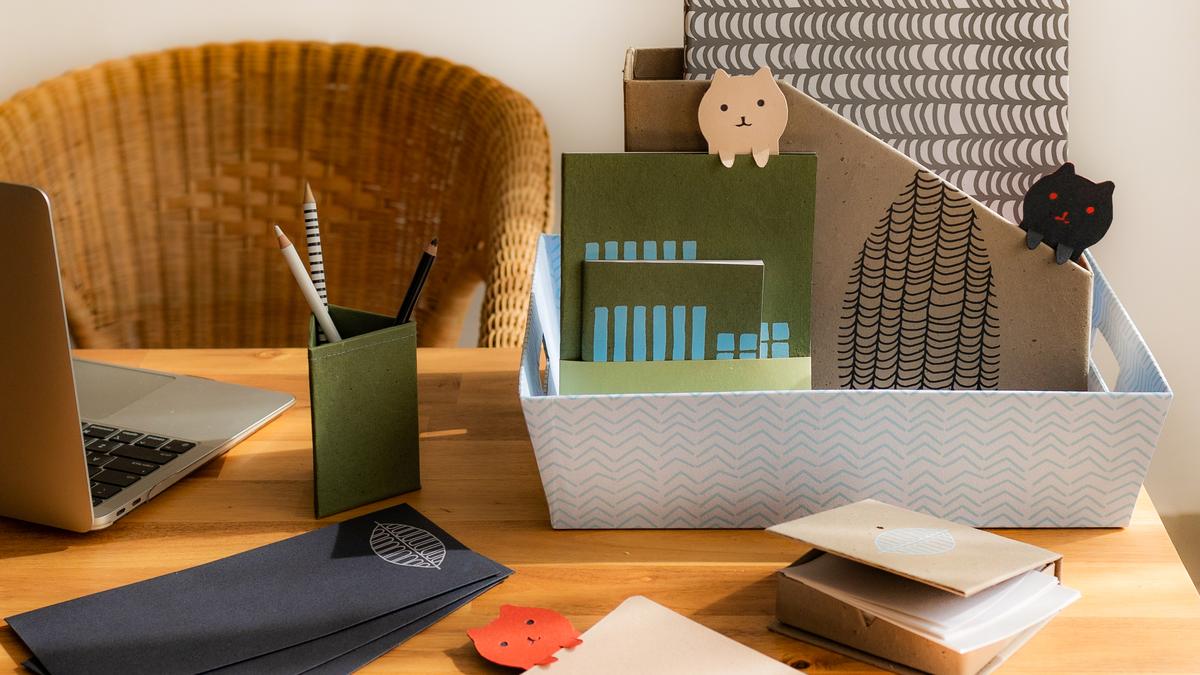
Today, Kavya crafts over 150 eco-friendly paper and paper-based products made with 15+ alternative fibres
| Photo Credit:
Special Arrangement
Today, Kavya crafts over 150 eco-friendly paper and paper-based products made with 15+ alternative fibres from agricultural, and textile waste. These include gift wrapping paper, bags, notebooks, sketchbooks, calendars, greeting cards, and even specialty papers such as denim paper and seed paper. As for the raw materials, they comprise banana fibre, lemongrass, rice stubble, coconut coir, corn husk, coffee husk, flax, hemp, water hyacinth, cotton rag offcuts, linen, denim waste from textile manufacturing companies. “Other natural sources include mulberry bark, elephant dung, etc. Our materials are sourced locally from farms, monetising farmers, textile units, and other industries that would otherwise send these by-products to landfills or burn them,” says Kavya, who is now experimenting with materials such as pineapple leaves, tea husk, among others.

Kavya Madappa
| Photo Credit:
Special Arrangement
“Our recent highlight is denim paper made from recycled textile waste, which is now being used by fashion brands for bags and packaging. We are working on spent barley paper, a by-product from breweries, which will launch later this year. Developing a hybrid low-energy paper-making machine is also on the cards,” says Kavya.
Details on bluecatpaper.com
Books at Paperdom
| Photo Credit:
Special Arrangement
Paperdom, Surat
Banana fibre and textile waste are turned into notebooks, bookmarks, cards, and more at Ritu Richa Jain’s start-up, Paperdom. The 40-year-old launched the brand in 2012 after stints as a junior research fellow at IIT Mumbai, art consultancy, and working in the paper trading business.
Ritu says she had planned to pursue a PhD, but during her time researching at IIT Mumbai, she realised that “the scientific path wasn’t bringing me joy”. She then returned to her hometown of Surat, and took on various roles: a stint with an NGO, a collaboration with an Ahmedabad-based art gallery, and eventually joining her father’s 35-year-old printing press. “It was here, surrounded by towering stacks of paper in the warehouse, that I began questioning the environmental cost of cutting down entire forests to make sheets of paper,” says Ritu, who had the idea to launch Paperdom when she came across paper made from elephant dung at the press.
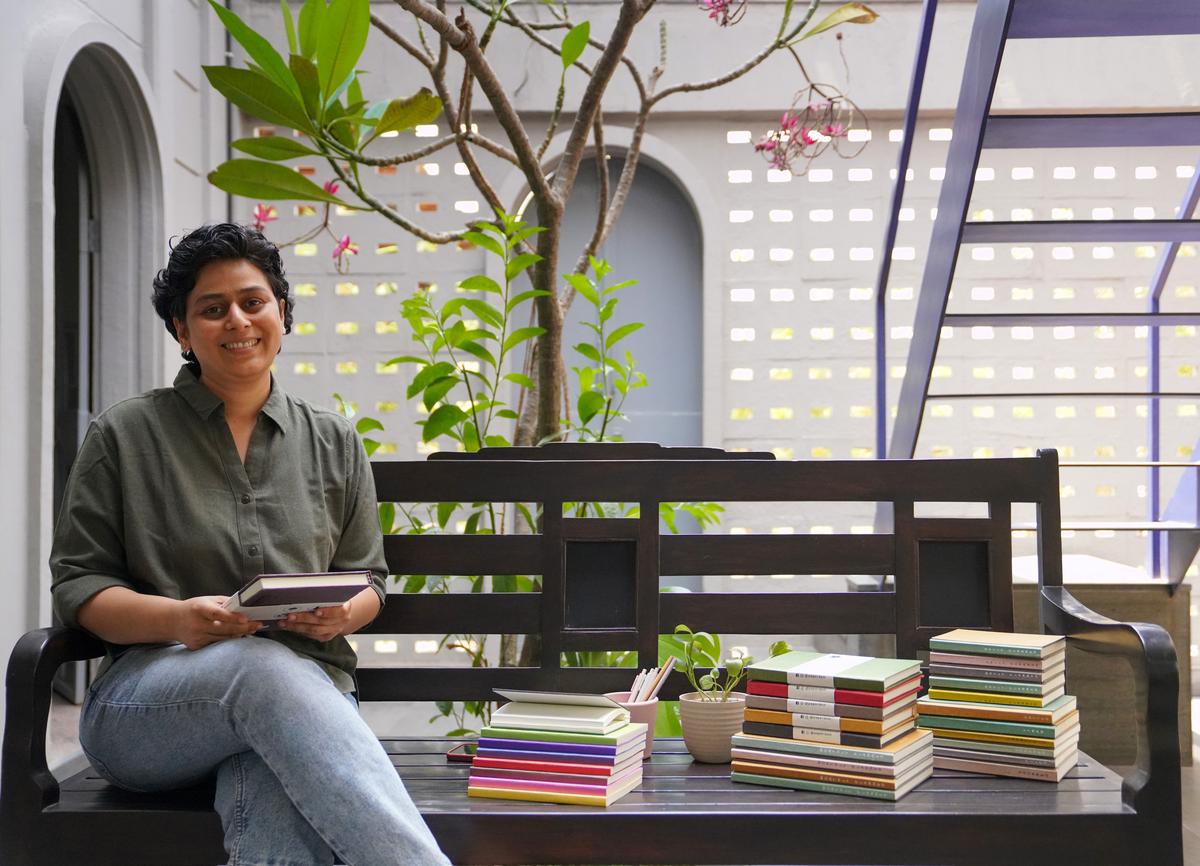
Ritu Richa Jain
| Photo Credit:
Special Arrangement
Her curiosity led her to Sanganer, near Jaipur, the hub of handmade paper in India, where she spent nearly two months learning the craft at a local institute. “This blend of scientific discipline, creative exploration, and a deep-rooted connection to the printing trade became the foundation for my entrepreneurial leap into sustainable papermaking,” says Ritu, who started off by making paper using textile waste and post-harvest banana plant waste. and later shifted to stationery. “This choice is driven by a focus on viability and reduced logistics costs, as Surat is a major textile hub and the southern part of Gujarat up to Maharashtra is densely populated with banana plantations. We tie-up with garment factories, hotels, and farmer clusters for the raw material,” she explains.
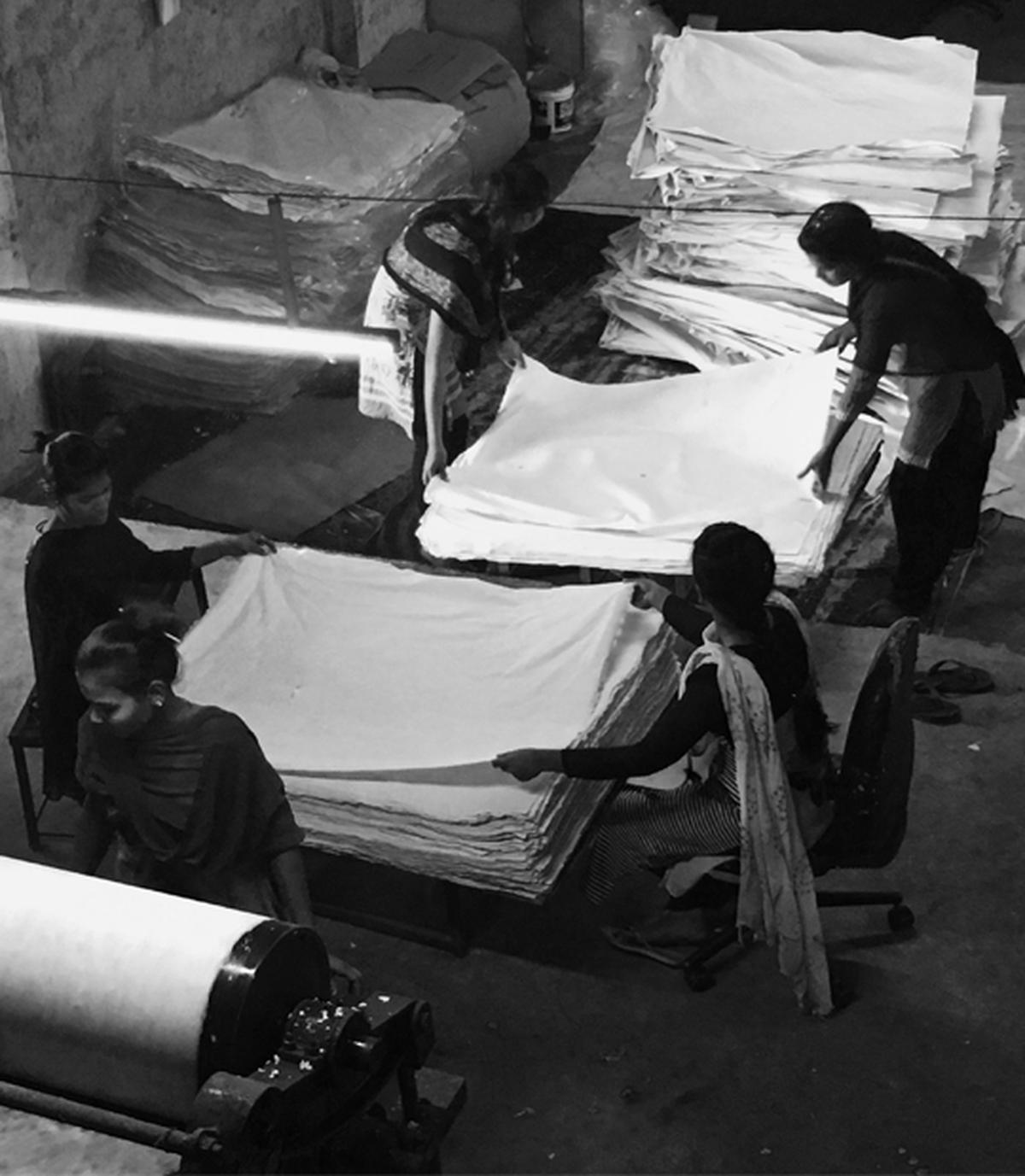
Paperdom’s making unit
| Photo Credit:
Special Arrangement
Once collected, the materials undergo processing in-house. Cotton rags are collected from local garment factories, says Ritu, and banana fibre is extracted in a seven-step technical process using indigenous machinery installed in or around banana plantations. “Both the raw materials have their own set of pre-processing steps. While cotton rags just need sorting before being shredded in a rag chopper, banana fibre is cut, cooked and washed before shredding. The shredded fibres go into the Hollander beater and are mixed with water to be converted into pulp of different concentrations,” says Ritu. This process takes anywhere between three to six hours depending on the fibre used. “Water soluble dyes are also added for colourful papers. The pulp is then passed through agitators to maintain consistency and is ready to be converted into sheets that are air-dried.”
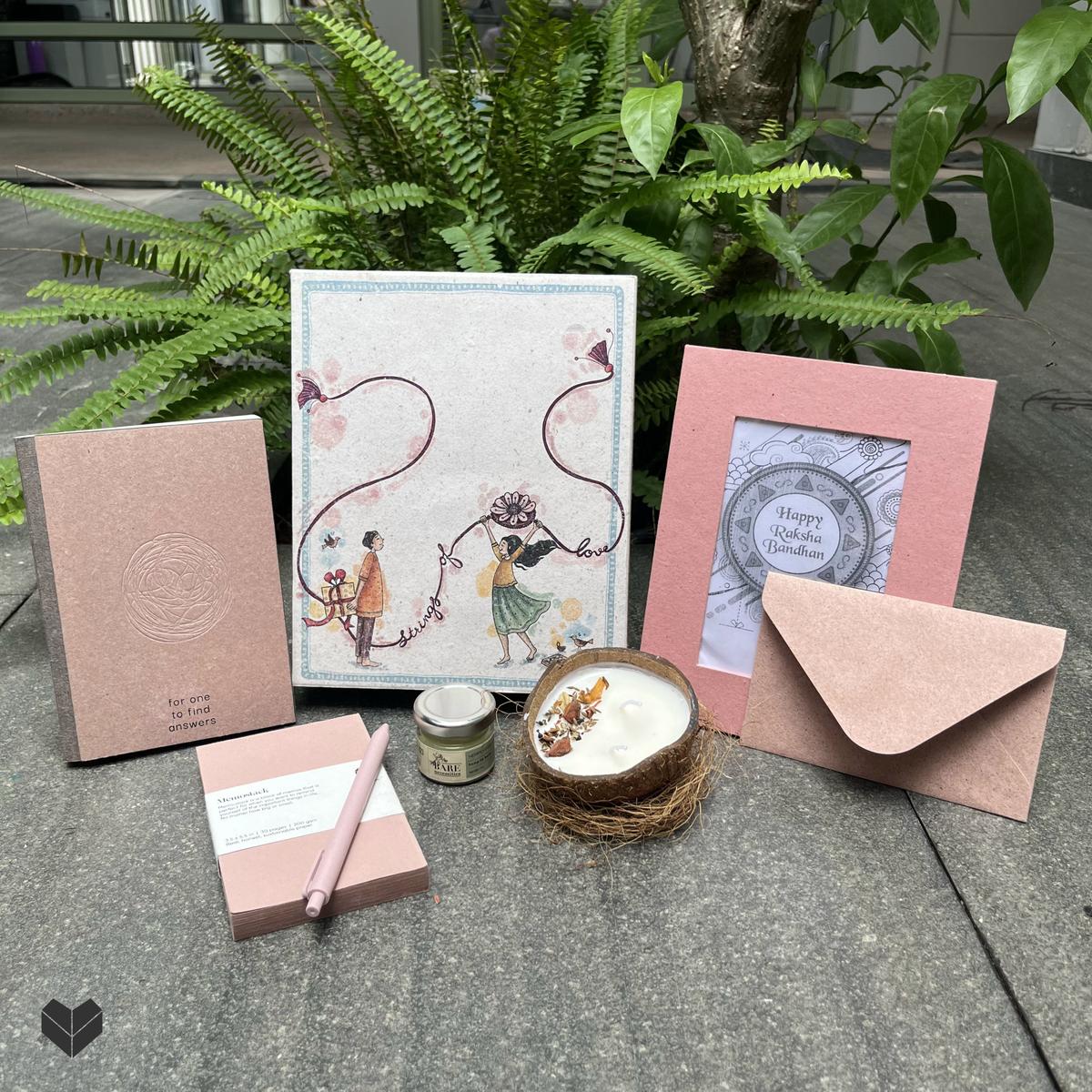
Paperdom’s catalogue also features plantable rakhis, seed paper cards and tags, coasters, etc
| Photo Credit:
Special Arrangement
Handmade stationery such as writing pads, diaries, aside, the catalogue also features plantable rakhis, seed paper cards and tags, coasters, wall art, and more. “On the stationery front, we have new planners and journals in the works, including a gratitude journal and corporate-friendly gifting solutions,” says Ritu, who is now exploring plant-based leather. And at her newly-launched Cafe Pulp, in Surat, visitors can browse materials and craft a product too. “The cafe’s ceiling is crafted from pulp panels, and we’re now working on bringing these panels to the market for use in ceilings and internal partitions,” concludes Ritu.
Details on paperdom.in
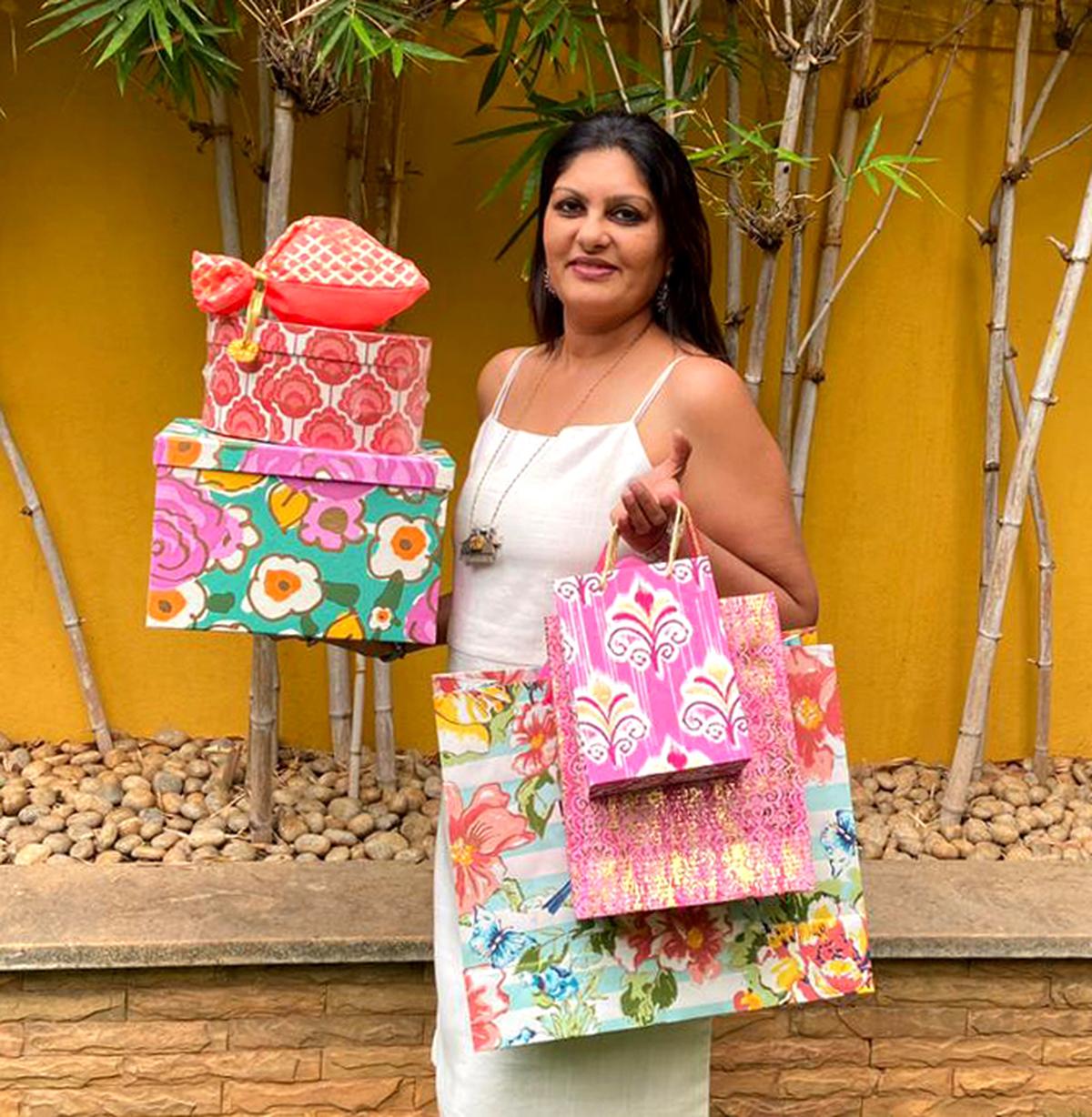
Sonali Maniar
| Photo Credit:
Special Arrangement
Templetree, Bengaluru
A graphic designer by profession, Sonali Maniar had a soft spot for stationery as a child and still has her collections from college. After being away for 16 years abroad, when she returned to India starting a stationery store was on her mind. In 2006, she launched Templetree in Mumbai as a brand that retailed party favours, gift bags, boxes, and trays. “I went on to launch two stores in Bengaluru, and one franchise in Hyderabad. Just before COVID hit, I had decided to shut all physical stores and went online-only,” says Sonali, who uses handmade paper made from cotton rag/cotton waste which is reduced to pulp.
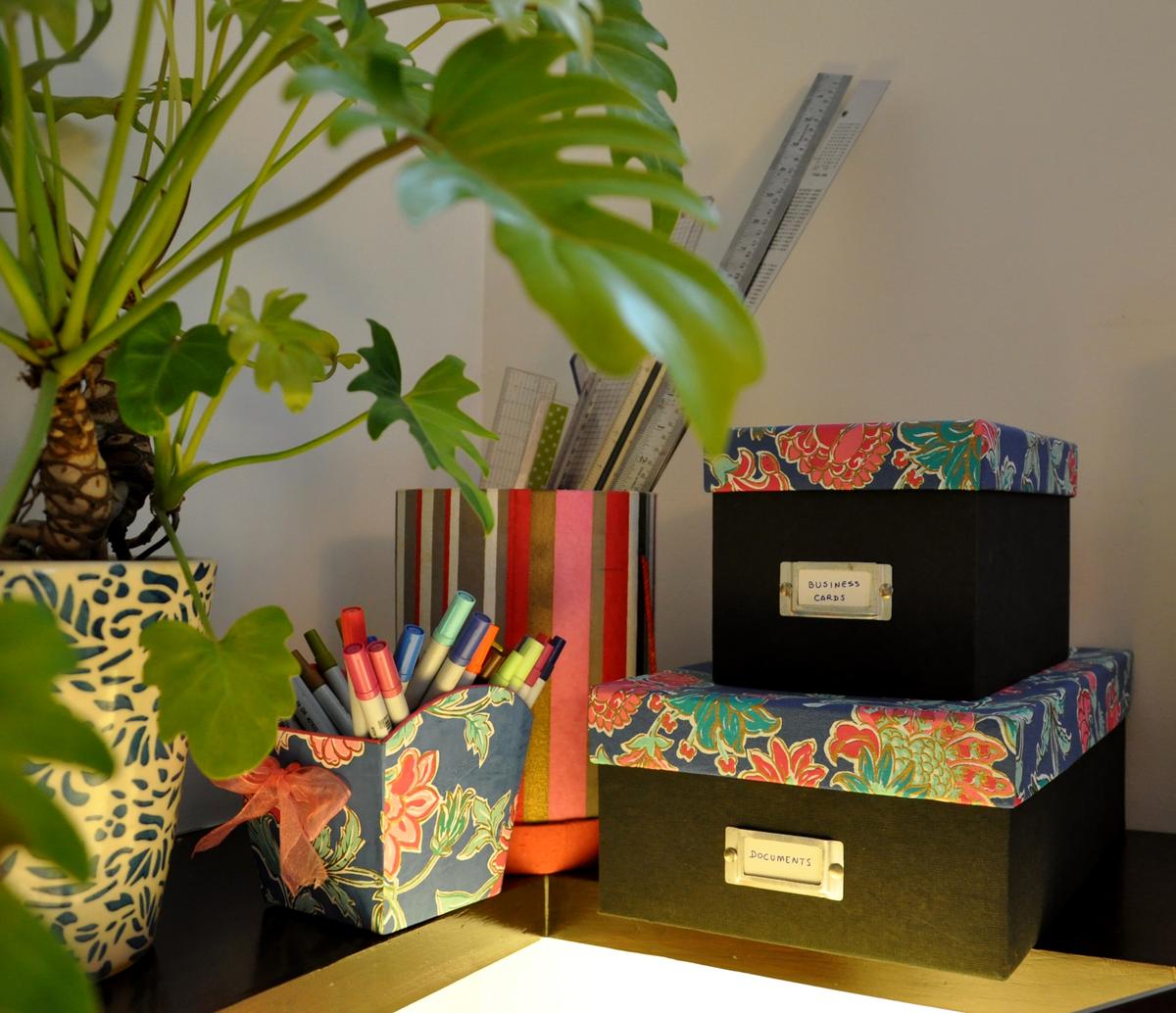
Products at Templetree
| Photo Credit:
Special Arrangement
Today, her catalogue comprises notebooks/journals, binders, organisers, memo pads, stationery sets, storage solutions; hampers and boxes, gift wrapping paper, and gift bags. “Cotton aside, other raw materials include agricultural waste, and bamboo. We also make paper from newspapers and magazines.”
Gift boxes at Templetree
| Photo Credit:
Special Arrangement
Taking us through the process of recycling cotton waste, Sonali says it begins by reducing cotton waste to pulp. “The pulp is transferred to large tanks where big trays with fine mesh are submerged into the pulpy water and shaken evenly to make sheets. The pulp sheets are covered with fine muslin cloth and then pressed to remove the water. Once the sheets are dry, they are passed through metal rollers and the rough edges are trimmed,” she explains.
For the upcoming wedding and festive season, Sonali will be launching a range of gift bags, boxesm and hampers to choose from.
Details on templetreepaper.com/